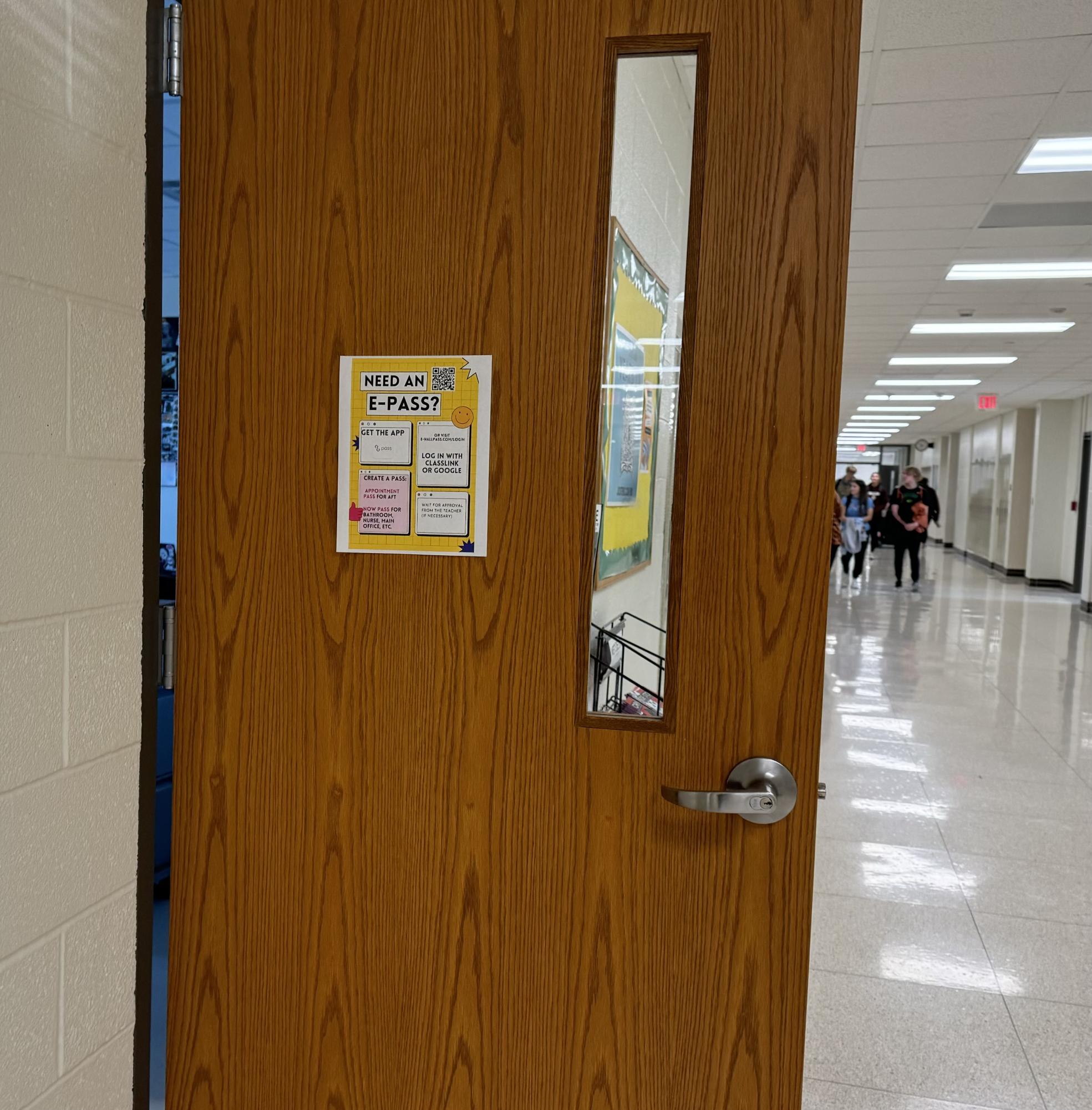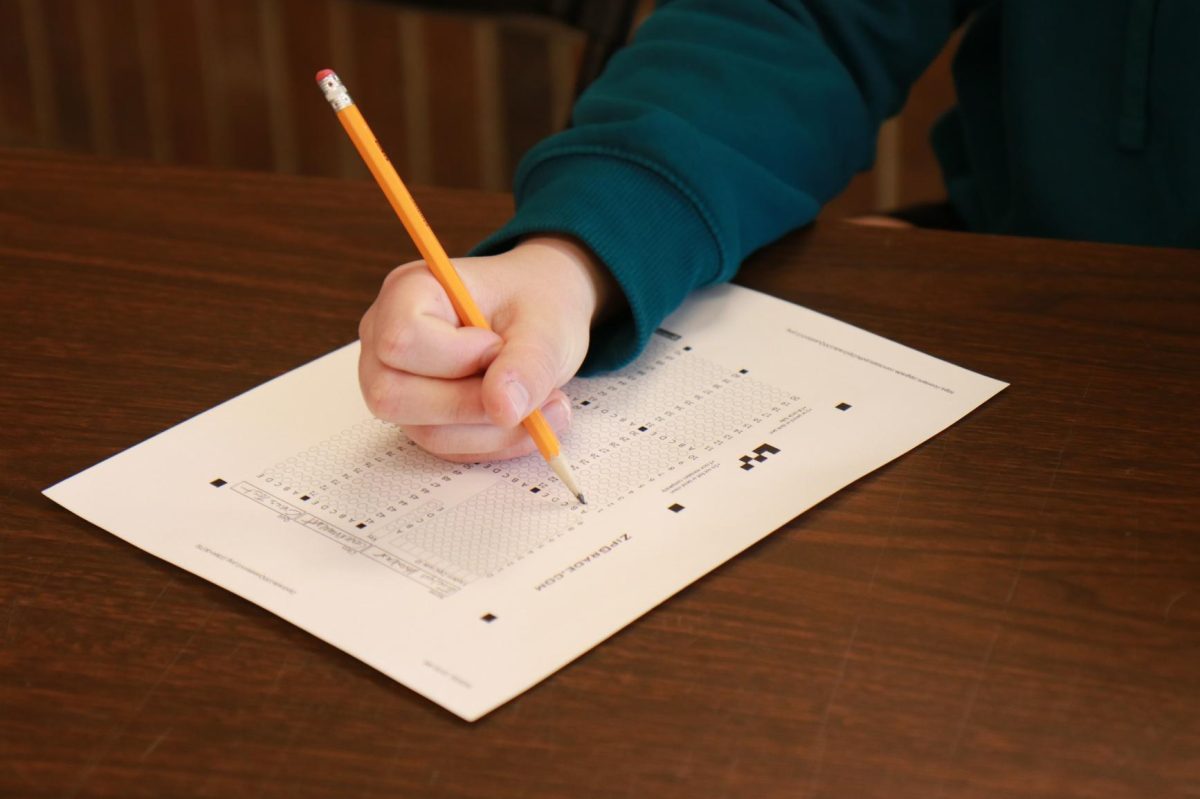The second trimester is fully underway and as students are starting to settle in, a new class schedule isn’t the only thing they are having to adjust to. West High has officially started to integrate an e-hall pass system through the Securely Pass app rather than traditional paper passes.
This new pass system allows students to create their own passes on their phones or computers to then be accepted by teachers. Students can create Now Passes, meant for bathroom breaks and any instance in which a student would have to leave in the middle of class. Students can also create Appointment Passes, used for Academic Focus Time and any scheduled meeting with a staff member.
Any change to a decades-old practice, like using paper hall passes creates a split in the thoughts and opinions of students and staff. After a few weeks of using this new system, students and staff have already formed opinions about the change.
From a student perspective, the general pros and cons of the new system are starting to become more clear. Sophomore Ethan Eige has used the new system a few times and notes the simplicity of the e-hall pass app.
“Now that I’ve actually used it a couple of times, I think I see the pros of it better on the one hand. For people that do have access to phones, for example, it’s actually a lot easier to use than I thought,” Eige said. “You kind of just got to pull up what class you’re going to or the name of the teacher, and then you just use that to go to the class you want to.”
Similar to Eige, Landon Lee ’26 also sees the pros of a technology based pass system in terms of the amount of paper that West uses and how efficient this system could become.
“Well, definitely a pro is that we use less paper with the [new] hall pass system, less paper waste. I guess depending on how efficient you are with technology, it could be faster,” Lee said.
In addition to the pros of the new system, Eige and Lee have also noticed specific cons that weren’t present with the past system. Eige points out difficulties of the new pass system when it comes to students who might not have access to a chromebook or a phone during instances when they would need a pass.
“The cons are for people that don’t have access to a phone or Chromebook at the moment. They’re kind of screwed because I don’t think they can get access to a pass in that case,” Eige said. “I get that it’s kind of on them for not having [chromebooks or phones] charged or whatever, but that still limits access to some people who might need a pass.”
Lee notes that the timer feature, that can be added on Now Passes to track how long a student was gone for, can’t always apply to everyone’s situation.
“I am in big opposition to the timer feature. I feel like some people just are slower. I mean, what if you have a physical disability, and so it takes longer to get from place to place? Does that timer still apply to you?” Lee said. “It’s just not very considerate of circumstances because what if there’s a hallway blocked or just someone’s having an emergency in the hallway, so you can’t use the hallway? It’s just not very considerate.”
While students are beginning to increase their usage of the new system, thus resulting in new opinions, staff members are as well. As the weeks progress, teachers are needing to overcome the barriers that some students face when trying to use the pass system, like figuring out the new technology amidst instruction time.
Math teacher Jean Morsch is starting to use the new system more in her classroom but stays lenient as she recognizes the difficulties of the new technology, including the ones she herself had when she began to learn how to use it.
“At first when I started using it, it was a struggle because I just learned something new. I had to learn how to sort of set it up myself to see okay, what do I want the students to be able to do?” Morsch said. “And my big thing is, I want them to be able to access their hall pass so they can go to the bathroom on their own and just hit start, hit stop when they get back and be done with it.”
Morsch acknowledges both the potential of the efficiency of the new system once everyone figures out the technology and the drawbacks to a system that requires teachers to accept passes in the middle of lessons.
“I don’t feel like I know it as well as I want to know it, but a part of it is getting used to that new technology and just improving on it,” Morsch said. “As soon as everyone gets on board, maybe [e-hall pass] will be faster for me, but if I’m teaching a lesson and I’m in the middle of things, paper passes definitely are the easiest right now.”
English teacher Katy Nahra agrees with Morsch that in the middle of instruction time, it’s not alway feasible to accept passes.
“I told my students that I’m not going to approve a pass in the middle of instruction, because I don’t have my computer by me. The system kind of assumes the teachers will constantly be monitoring the pass, and that just doesn’t happen. Teachers are not next to their computers,” Nahra said.
While Nahra has needed to assess the ways in which this new system will work best in her classroom, she explains that there are benefits that go beyond the efficiency of a technology based system.
“I really liked the idea that as a school we’re able to track how many times students leave classes, who’s in the hallway at any given time, especially if there was an emergency or something we know where the student is at all times,” Nahra said.
Both students and staff have conflicting opinions on whether or not this system is ideal for West, and many classrooms are implementing the new system while still maintaining the traditional pass system. Although this new pass system is heavily encouraged and integrated, it has not yet been made mandatory. While it is unsure whether or not this e-hall pass system has a mandatory spot in West High’s future, students and staff members are using this second trimester as a trial and error period to learn the new technology.
“There’s a lot of really good benefits to it. I don’t know that we’re utilizing the system to its fullest yet, so as we learn, hopefully it’ll get better,” Nahra said.













